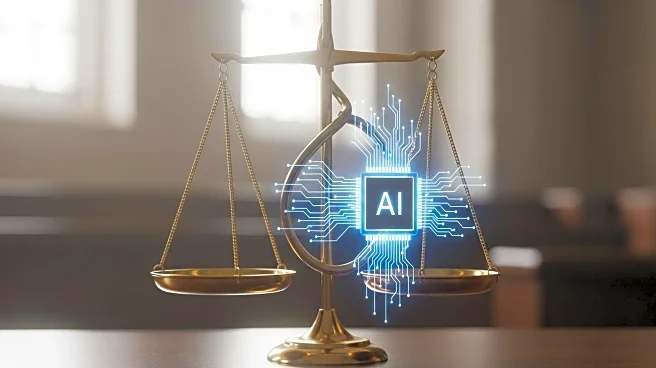What's Happening?
A federal judge in San Francisco has expressed significant concerns over a proposed $1.5 billion settlement between Anthropic, an artificial intelligence company, and authors who claim their books were pirated to train AI chatbots. The settlement aims to resolve allegations that Anthropic illegally used nearly half a million books to enhance its Claude chatbot. U.S. District Judge William Alsup criticized the settlement, suggesting it may not adequately address the authors' claims and could lead to further litigation. He has scheduled a follow-up hearing on September 25 to reassess the settlement terms. The judge's concerns include the potential for additional lawsuits and the transparency of the claims process, which he believes may not fully protect the authors' interests.
Why It's Important?
The case highlights ongoing tensions between the publishing industry and AI companies over intellectual property rights. If the settlement is approved, it could set a precedent for how similar cases are handled, impacting authors, publishers, and AI developers. The outcome may influence future negotiations and legal strategies in the tech industry, particularly regarding the use of copyrighted material for AI training. Authors and publishers stand to gain financial compensation, but the broader implications could affect how AI companies approach data acquisition and copyright compliance.
What's Next?
Judge Alsup has set deadlines for additional documentation and a revised claims process to ensure transparency and fairness. The September 25 hearing will determine whether the settlement can proceed or if the case will go to trial. Stakeholders, including the Authors Guild and the Association of American Publishers, may need to adjust their strategies based on the judge's feedback. The decision could influence future legal frameworks governing AI and intellectual property.
Beyond the Headlines
The case raises ethical questions about the balance between technological advancement and intellectual property rights. It underscores the need for clear guidelines on the use of copyrighted material in AI development, which could lead to long-term shifts in industry practices and legal standards.










